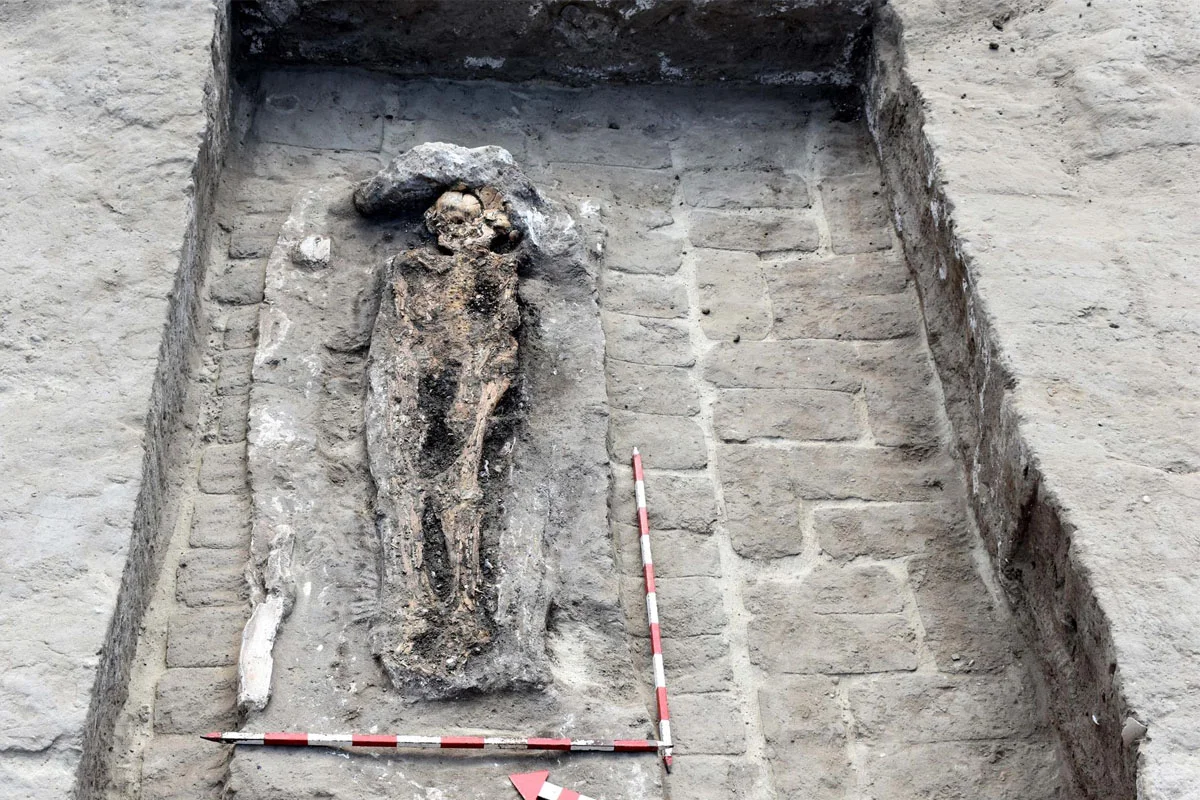Archaeologists from the Supreme Council of Antiquities (SCA) have unearthed the tomb of a high-ranking military commander from the reign of Ramses III.
The tomb was discovered at Tell Roud Iskander in the Maskhouta area of the Ismailia Governorate, along with a series of collective and individual tombs dating back to the Greco-Roman and Late Roman periods.
According to Mohamed Ismail Khaled, Secretary-General of the SCA, Tell Roud held military significance during the New Kingdom period. “The site was crucial in securing Egypt’s eastern borders, with fortresses and strongholds built for defence,” said Khaled.
The tomb at Tell Roud consists of a main burial chamber with three adjoining rooms, which were constructed using mud bricks and lined on the interior with white plaster.

Excavations unearthed bronze arrowheads and remnants of a ceremonial sceptre. Based on the funerary goods, archaeologists suggest that the deceased was a high-ranking military commander who served during the reign of Ramses III.
Among the recovered tomb contents are alabaster vessels, a gold ring engraved with King Ramses III’s cartouche, beads and coloured stones, a small ivory box, and a burial wrapped in plastered layers of cartonnage – suggesting the tomb was later reused.
In the surrounding area of Tell Roud, mass graves from the Greco-Roman and Late Roman periods were also discovered, as well as burials from Egypt’s Late Period that contain amulets depicting Taweret, Bes, and the Eye of Udjat.
Header Image Credit : Supreme Council of Antiquities (SCA)
Sources : SIS





